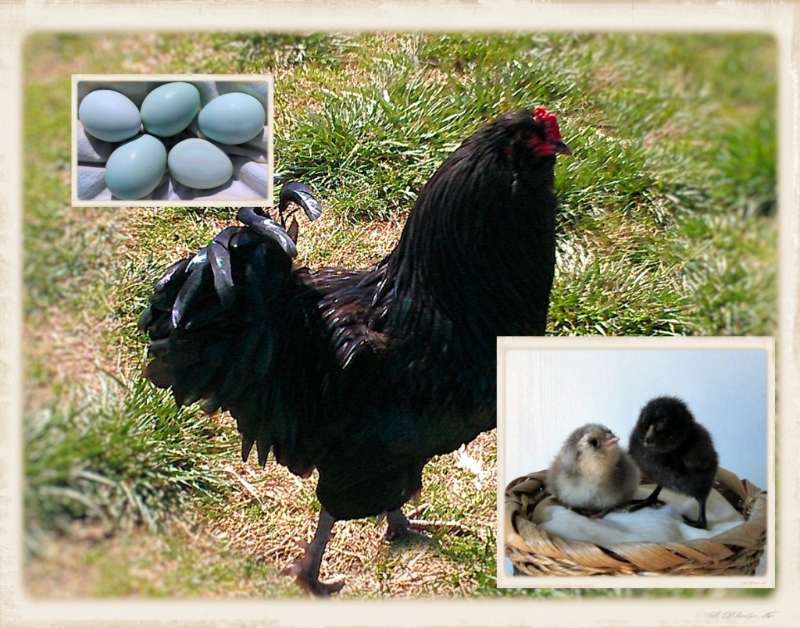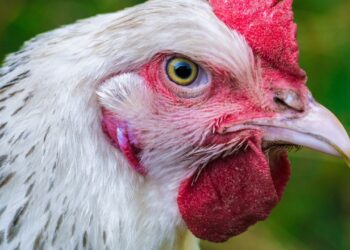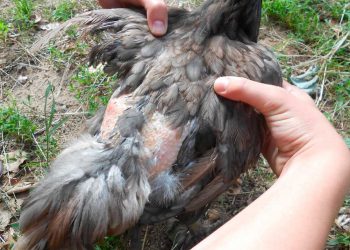Most chickens can stay outside in the winter just fine. They love to walk around and they can handle the cold well. There are of course several points that you should pay extra attention to in winter. Especially when it freezes or snows,
it is wise to keep a close eye on the chickens, the coop, and the water supply. But keeping chickens warm during cold winter days or nights is really not necessary. The animals are perfectly capable of keeping themselves warm.
Chickens in winter
Chickens generally tolerate the cold well. Most chickens in winter can therefore remain outside. Several points should be taken into account during cold winter days. For example, it must be ensured that the drinking water of the chickens is not frozen. The chickens must also be provided with sufficient feed for extra energy to stay warm.
Furthermore, a draft-free coop with sufficiently warm ground cover is a nice place for the chickens to stay during the night. Finally, sufficient shelter and good care of the wattles, combs, and legs ensure that the chickens get through the winter without any worries.

Water
Water is very important for chickens. Without fresh drinking water, chickens will stop laying eggs. If there is dehydration, the chickens will become weaker and in extreme cases can die. When there is frost, the drinking water of the chickens can freeze. If there is only night frost,
it is fairly easy to provide fresh drinkable water. Chickens are usually in the night coop at night and will not drink. It is, therefore, best to put the drinking water inside during the night and put it outside again early in the morning.
You can also choose to empty the drinking tower at night and refill it the next morning. Providing unfrozen water is more difficult when it also freezes during the day. There are several ways to keep the water frost-free:
- Fill the drinking tower with lukewarm water and refresh it regularly throughout the day. Try to place the water in a place where the sun shines. In light frost, changing twice a day will be sufficient, but on really cold days it may be necessary to change the water more often.
- Use a heating element that you place under the drinking tower. Check regularly whether the water is ice-free.
- Buy a second drinking tower and put it filled near the heating. If the water is frozen outside, you can easily swap the drinking towers and let the frozen water thaw inside.
There are also some tips for things not to do to keep the water ice-free:
- Do not add salt, sugar, or antifreeze to the water. This is unhealthy for the chickens.
- Do not give hot water. The water vapor can cause the comb and wattles to freeze.
- Do not give water from a metal drinking trough or drinking tower. The comb of the chickens can stick to it during frost.
Feed for chickens in winter
During cold days, chickens need extra feed. They use more energy to keep their bodies warm. The metabolism is higher during the winter. It is best to give nutritious food with extra carbohydrates. Grains such as corn and sunflower seeds are energy-rich and nutritious. Also, green food,
fruit, and insects are tasty and nutritious extra. Do not give fat balls for birds or cooked rice or pasta. This is because there are too few nutrients for the chickens and this food can also cause problems with digestion.
Reading Suggestions: Care Of Chickens During The Summer Day
Shelter
Not necessary, but comfortable for the chickens, is some extra shelter. Make sure that the chickens are not in draft and give them plenty of places to shelter in rain, hail, or snow showers. For example, you can move a run for a fence, or cover the run with wood. A raised night loft also offers opportunities to hide under.
Collect eggs
Although you should collect eggs every day throughout the year, this is especially important in severe frost to maintain the quality of the eggs. Eggs consist of more than half water and can easily freeze. Frozen eggs will burst and the eggs will no longer be usable. In addition, it will be a mess if the eggs are still in the coop when thaw.

Night cage
Night frost regularly occurs in the Netherlands and Belgium. It is therefore important to make the night loft well-resistant to cold nights. Because chickens can withstand the cold well, heating the night coop is not necessary. It can even cause the chickens to get sick because the temperature difference between inside and outside increases.
The coop should be draft-free but still have sufficient ventilation to prevent moisture build-up. A thick layer of bedding is also comfortable for the chickens. Aubiose and hemp fiber in particular are good ground covers because they absorb little moisture. Straw is a suitable ground cover to retain heat.
Wood shavings, beech chips, and hay are less suitable ground covers in winter because these materials retain moisture that can freeze. Finally, it is good not to let the chickens sleep in a night coop that is too large. smaller lofts heat up faster due to their own body heat.
Protection of wattles, combs, and paws
In real severe frosts, the combs or wattles of the chickens may freeze. Also, legs with feathers, such as with saber legs, can freeze. You can rub wattles and combs with Vaseline. In case of persistent frost, it is best to apply once a week. With only night frost, lubrication every other week is sufficient. Foot feathers should be checked regularly for ice. If necessary, ice can be removed with a hairdryer.
Snow
Although chickens can handle snow well, the animals will appreciate it if the run or outdoor area is cleared of snow. Chickens cannot forage well in the snow and will get bored faster. Snow should also always be removed from the roof of a run or night hut. Not all roofs can withstand heavy snow well and there is a possibility that the roofs will collapse or break.
Not hardy chicken breeds
Although almost all breeds can withstand the cold, there are a number of varieties that cannot withstand cold winters. Seramas and fighting breeds like Ko Shamo can’t stay outside in freezing temperatures. These varieties originate from warm areas and are not adapted to frost.
These chickens can be kept in a heated shed or coop. For example, the loft can be heated with heat lamps or a heating element.









